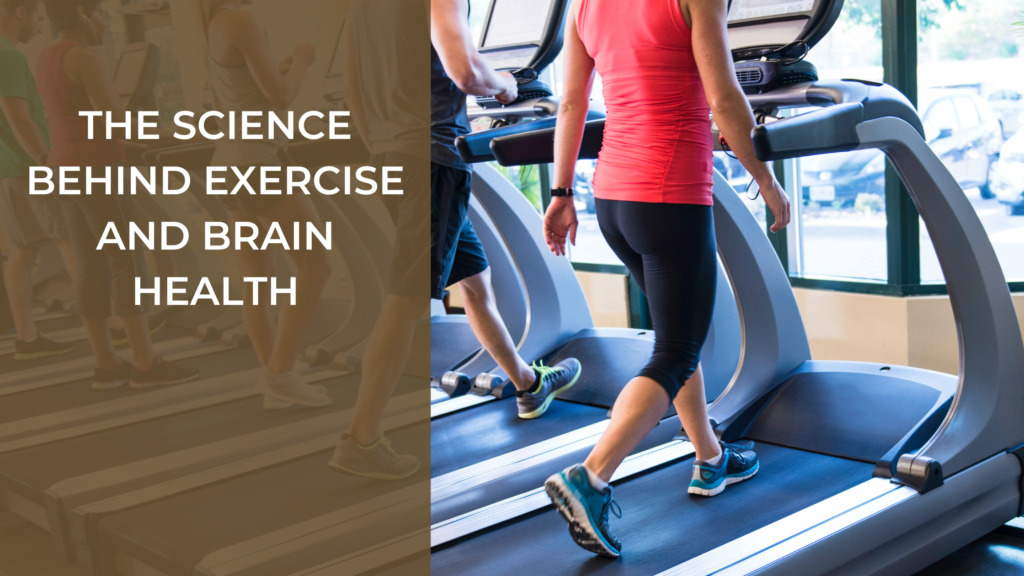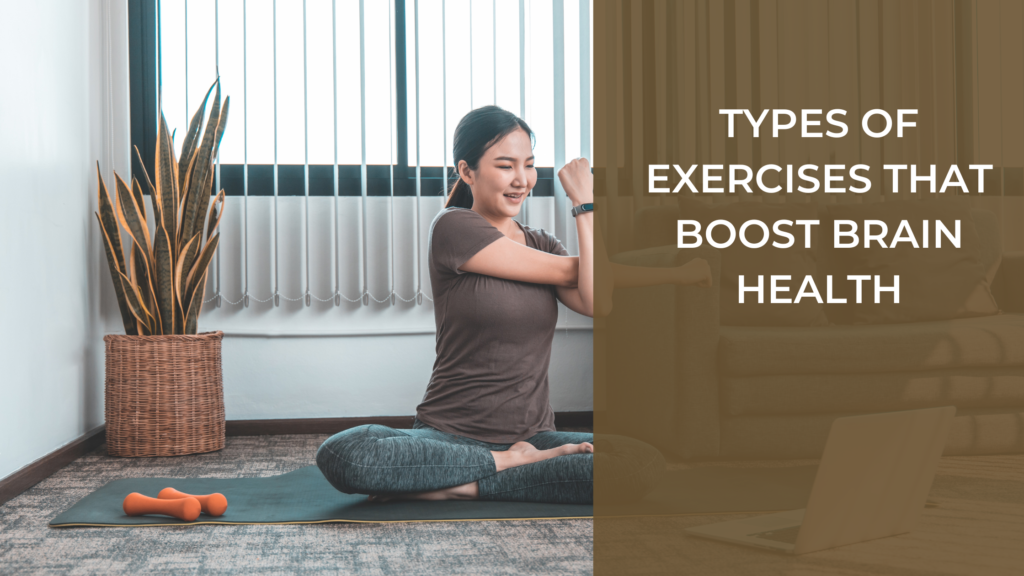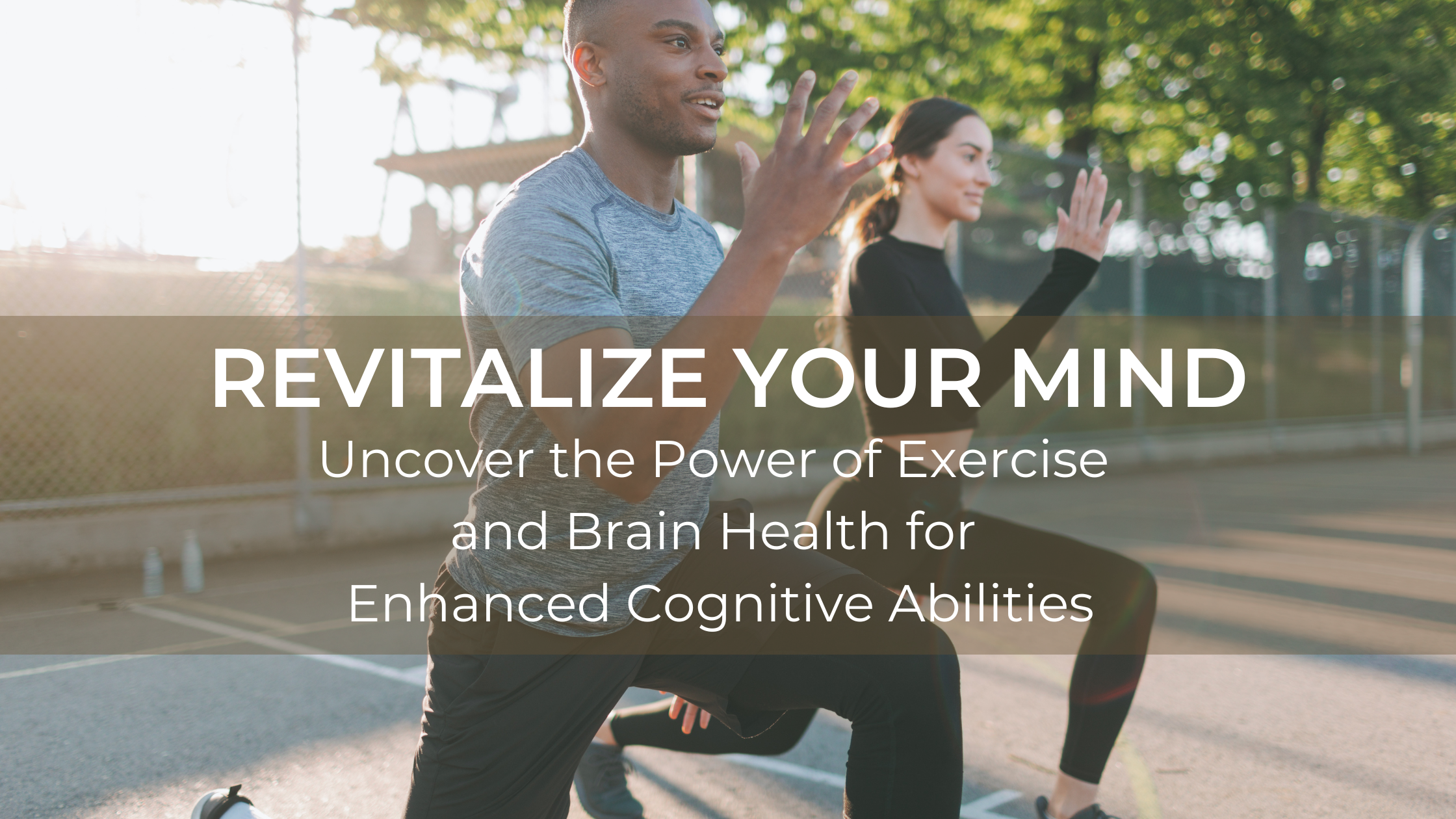Revitalize Your Mind: Uncover the Power of Exercise and Brain Health for Enhanced Cognitive Abilities
Boost Your Cognitive Performance: Unleashing the Connection Between Exercise and Brain Health
Maintaining a healthy body and mind has become more crucial in today’s fast-paced world. With increasing awareness of the link between exercise and brain health, people are discovering the profound impact physical activity can have on their cognitive well-being. This article will explore the science behind this connection, explore exercises promoting brain health, and provide tips for incorporating physical activity into your daily routine. By understanding the benefits of exercise for brain health, you can transform your life and unlock your cognitive potential.
The Science Behind Exercise and Brain Health

A wealth of scientific research backs the relationship between exercise and brain health. Regular physical activity improves cognitive function, enhances memory, and reduces the risk of developing neurodegenerative diseases such as Alzheimer’s and Parkinson’s.
One of the primary ways exercise benefits the brain is by increasing blood flow. When you engage in physical activity, your heart pumps more blood, delivering oxygen and essential nutrients to the brain. This increased blood flow supports the growth of new neurons and neural connections, vital for cognitive functions like learning and memory.
In addition to promoting neuronal growth, exercise also helps regulate neurochemicals such as dopamine and serotonin. These chemicals significantly affect mood regulation, motivation, and cognitive processes. By keeping these neurochemicals in balance, exercise can help maintain optimal brain health and function.
Types of Exercises that Boost Brain Health

Aerobic Activities
Aerobic exercises, also known as cardio workouts, increase your heart rate and breathing. Aerobic exercises include brisk walking, jogging, swimming, cycling, and dancing. These activities help to enhance brain health by improving cognitive function and memory and reducing the risk of neurodegenerative diseases. Additionally, aerobic exercises release endorphins, which can help improve mood and alleviate symptoms of depression and anxiety.
Strength Training
Studies have shown that strength training can boost cognitive performance, particularly in areas related to executive functions, such as attention, problem-solving, and working memory. Strength training exercises, such as weightlifting, resistance band workouts, and bodyweight exercises, can also positively impact brain health. These activities help build muscle mass, increase bone density, and improve balance and coordination.
Stretching and Flexibility Exercises
Research has shown that stretching and flexibility exercises can improve cognitive function and memory and support overall mental well-being. Stretching and flexibility exercises, like yoga, Pilates, and tai chi, may also contribute to better brain health. These activities improve balance, flexibility, and posture while reducing stress and promoting relaxation.
Tips for Incorporating Exercise into Your Daily Routine

It is essential to make physical activity a regular part of your life. Here are some tips for incorporating exercise into your daily routine:
Finding Activities You Enjoy: Choose exercises you genuinely enjoy, as you’ll be more likely to stick with them in the long run. Whether dancing, swimming, or hiking, find activities that make you feel good and motivated.
Establishing Realistic Goals: Set achievable and realistic goals for yourself to help maintain motivation and track progress. Remember to start slowly and gradually increase your workouts’ intensity and duration.
Overcoming Common Barriers to Exercise: Identify the obstacles that may prevent you from exercising regularly, such as time constraints, lack of motivation, or fear of injury. Develop strategies to overcome these barriers, such as scheduling workouts during your most energetic times or finding workout buddies for support and accountability.
Tracking Progress and Staying Motivated: Record your exercise achievements and use them as a source of motivation. Celebrate your milestones and accomplishments, no matter how small, to maintain enthusiasm and stay committed to your fitness journey.
Additional Lifestyle Factors that Support Brain Health

While exercise significantly promotes brain health, it’s essential to consider other lifestyle factors that can further support cognitive well-being.
Proper Nutrition: A well-balanced diet, rich in whole foods, fruits, vegetables, lean proteins, and healthy fats, can provide the essential nutrients for optimal brain function. Consuming foods high in antioxidants, omega-3 fatty acids, and B vitamins can help support cognitive health and reduce the risk of neurodegenerative diseases.
Adequate Sleep: Ensuring quality sleep is crucial for overall brain health. Sleep deprivation can negatively affect memory, cognitive function, and mood. Aim for 7-9 hours of sleep per night to support optimal brain function and overall well-being.
Stress Management: Chronic stress can harm brain health and cognitive function. Implement stress-reducing practices such as meditation, mindfulness, deep breathing exercises, and time in nature to help alleviate stress and support mental health.
Social Connections and Mental Stimulation: Building solid social relationships and engaging in mentally stimulating activities, such as reading, solving puzzles, or learning new skills, can improve brain health. These activities can help keep the mind sharp, improve memory, and reduce the risk of cognitive decline.
The connection between exercise and brain health cannot be overstated. Regular physical activity can improve cognitive function, enhance memory, and lower the risk of neurodegenerative diseases. You can support your brain’s health and unlock your mental potential by engaging in aerobic activities, strength training, and stretching exercises.
In addition to exercise, adopting a well-rounded lifestyle that includes proper nutrition, adequate sleep, stress management, and mental stimulation can further bolster brain health. Embrace the transformative power of exercise and make physical activity a priority in your life. Start today and witness the incredible benefits of exercise on your cognitive performance and overall well-being.

